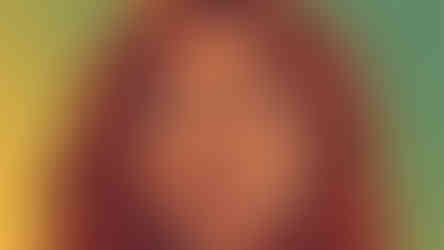Why I Gotta Be a Witch, Though? The Case Against Calling Herbal Healers 'White Witches'
- Regina Brown
- May 23, 2024
- 3 min read
Updated: May 23, 2024
Introduction: Picture this: You're at a garden party, chatting about the wonders of chamomile tea for calming nerves or the miraculous healing powers of aloe vera. Suddenly, someone leans in and says, "Wow, you must be a white witch!" Cue the awkward laughter and the inevitable inner monologue: "Why I gotta be a witch, though?" Let's dive into why labeling herbal enthusiasts as "white witches" is not only outdated but also a bit ridiculous. Spoiler alert: it involves history, stereotypes, and a dash of humor.

The Herbalist's Dilemma: Herbalism is the practice of using plants for medicinal purposes, a tradition that dates back thousands of years. From ancient Asia, Africa, and Egypt to the indigenous peoples of the Americas, cultures around the globe have harnessed the power of nature to heal and nourish. Fast forward to today, where the resurgence of natural remedies has brought herbalism back into the spotlight. But why must those who dabble in the botanical arts be dubbed "white witches"? Isn't it enough to be called an herbalist, a healer, or even a plant enthusiast?
The Witchy Label: A Historical Perspective: The term "witch" conjures up images of broomsticks, pointy hats, and cauldrons bubbling with mysterious potions. Historically, however, the label of witchcraft has been used to demonize and persecute those—mostly women—who were seen as different or threatening. During the witch hunts of the Middle Ages and early modern period, thousands of innocent people were accused of witchcraft and executed. In this light, calling someone a "white witch" because they know how to make a mean lavender salve feels a bit tone-deaf, doesn't it?

The Color Conundrum: Let's talk about the "white" part of "white witch." The idea of "white" or "good" witches versus "black" or "evil" witches plays into a simplistic and racially loaded binary. It's an attempt to categorize and sanitize the image of witchcraft, making it palatable for mainstream society. But why categorize at all? Using plants to heal doesn't need a color code or a mystical label. It's science, tradition, and a bit of green-thumb magic all rolled into one.
The Stereotype Struggle: Beyond the historical baggage, there's also the issue of stereotypes. The "white witch" label can trivialize and romanticize the hard work and knowledge that goes into herbalism. It reduces the craft to something whimsical and otherworldly rather than recognizing it as a legitimate and valuable field of study. Imagine calling a doctor a "white wizard" because they prescribe medicine. Sounds silly, right? Herbalists deserve the same respect for their expertise and dedication.

A Humorous Take on the Serious Stuff: Let's inject a little humor here. Picture a scenario where someone at a dinner party introduces themselves as a "white witch." The responses might range from, "Can you turn my annoying neighbor into a toad?" to "Do you have a spell for my Wi-Fi woes?" While it's good for a chuckle, it underscores how the term can lead to misconceptions and underestimates the real science behind herbal healing. Let's save the witchy titles for Halloween costumes and Harry Potter fan clubs.
Embrace the Herbalist Within: So, next time you're brewing a cup of one of my teas or asking me or another enthusiast about a particular herbal concoction, remember: they are an herbalist, a healer, a nature enthusiast—not a "white witch." Embrace the rich tradition of herbalism with pride, and let's leave the outdated labels where they belong—in the past. Herbal knowledge is powerful and beautiful in its own right, without the need for mystical embellishments.
Conclusion: In a world that's rediscovering the benefits of natural remedies and holistic healing, it's time to give herbalists the respect they deserve without resorting to antiquated and whimsical labels. So, let's drop the "white witch" moniker and celebrate the art and science of herbalism for what it truly is—a testament to the healing power of nature and human ingenuity. After all, isn't it enough to be an amazing, plant-loving human? Why I gotta be a witch though?
.png)


Comments